Emergency Response to Wildfires in Latakia, Syria
Wildfires in Latakia, Syria have devastated entire communities, destroying homes, agricultural land, and vital infrastructure. In response, DRC provided life-saving assistance to affected families, including cash support, hygiene kits, and psychosocial aid, to help them recover and rebuild amid ongoing crises.
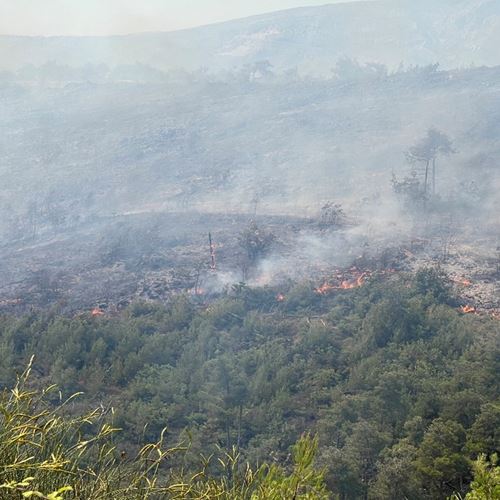
I will never forget what happened and how the fire attacked us from all directions. The fire destroyed the houses, and we couldn’t even see the sky through the flames.
/ Community member, Latakia
This is what a community member shared as she described the terrifying moments when the wildfires swept through her village in Latakia governorate. As the fires destroyed houses, land, olive groves, crops, and killed livestock, families were left devastated, witnessing the flames consume their memories and the trees they and their families have long relied on.
The largest concentration of the wildfires, which hit the country early July, were in Latakia governorate, including dense forest areas and agricultural land already impacted by drought conditions reported to be the worst to hit the country in decades.
The wildfires cost thousands of families their livelihoods by destroying the land they rely on as their main source of income. It further destroyed essential infrastructure, impacting communities' access to water and electricity.
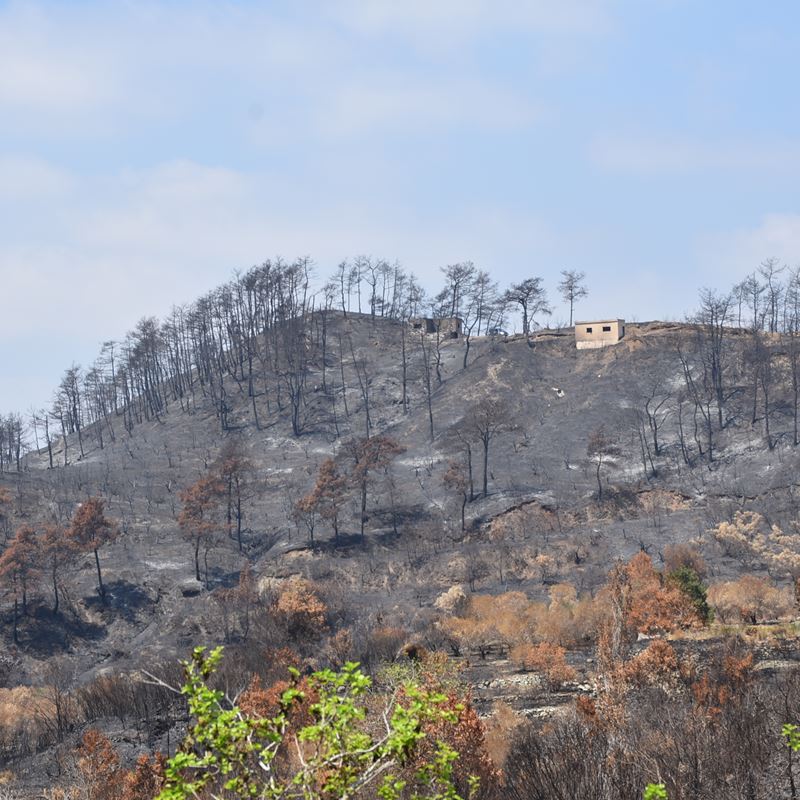
An affected village in Balloran area, Qastal Maaf. DRC, 2025.
As local and international efforts were mobilized to contain the wildfires, families – fearing for their lives – fled their homes and sought refuge in neighboring areas. This displacement left many in urgent need of assistance to meet their basic needs, particularly with Latakia governorate having less presence of NGOs compared to other parts of Syria.
In response, the Danish Refugee Council (DRC) deployed its mobile emergency teams to address immediate needs stemming from the wildfires and prevent further risks of harm.
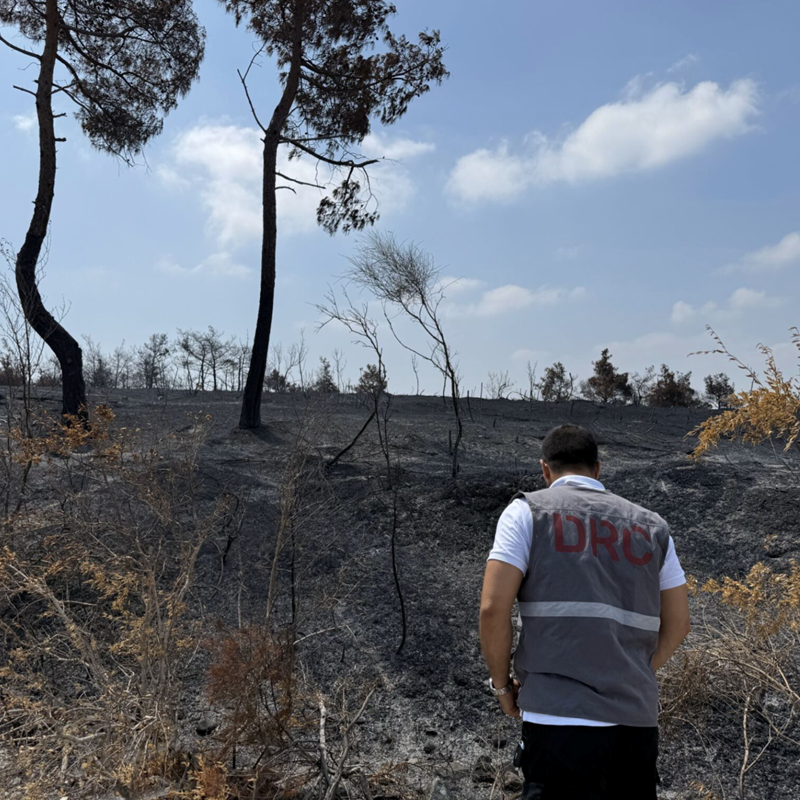
An affected village in Balloran area, Qastal Maaf. DRC, 2025.
We lost our crops, the agricultural land we rely on, and our house was damaged. We had to seek refuge in rural Latakia. Today, we are trying to return and farm our lands, but we lack sufficient financial resources. We now depend on assistance from organizations, but we fear this support could stop at any moment
/ Affected community member, Qastal Maaf
In its support to affected populations, DRC targeted Qastal Maaf district in Latakia governorate, as one of the areas most impacted by the wildfires, with many communities in need of humanitarian assistance. To ensure DRC's intervention was tailored to these needs, complementary, and addressing identified gaps in the response, DRC conducted rapid assessments, consulting with affected communities, community representatives, and local authorities.
Communities identified hygiene kits and jerry cans as a top priority, in order to maintain basic hygiene and collect drinking water from temporary distribution points. Additionally, the assessments revealed a strong preference for flexible cash assistance, with community members stating they will use the assistance for various purposes, including for the installation of new water pipes to access water for domestic and agricultural use.
The fires swept through the village, destroying everything: houses, trees, electricity, and water systems. Nothing remains but the smell of fire and burned memories.
/ Affected community member, Qastal Maaf
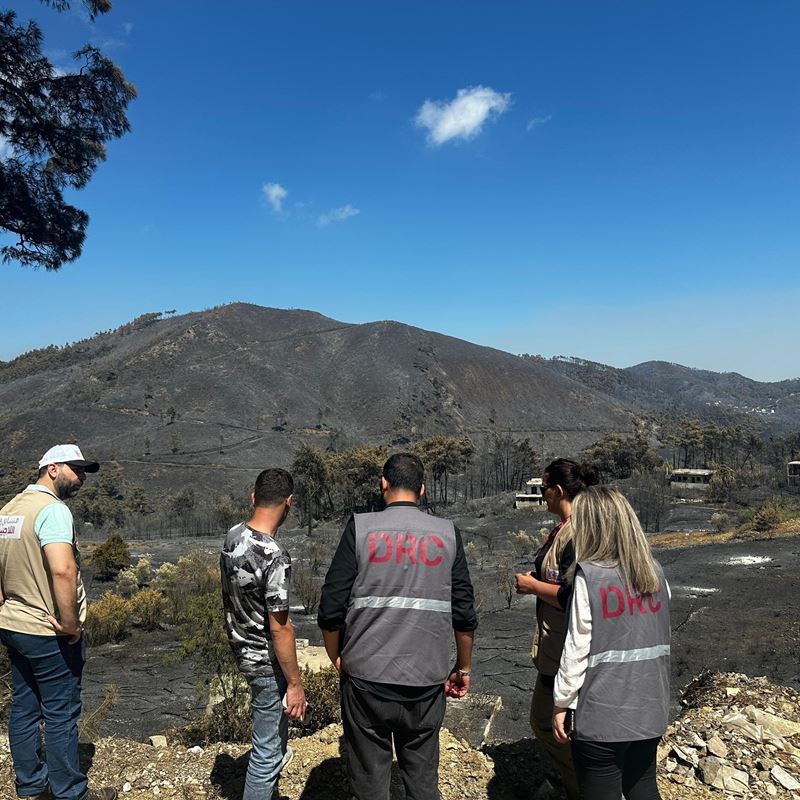
DRC team conducting a rapid needs assessment, Qastal Maaf
With the completion of the assessment phase and identification of priority needs, DRC, with the support of European Union Humanitarian Aid, provided jerry cans and hygiene kits to 500 families to help them meet their basic needs and reduce health risks at the early onset of the emergency.
Additionally, DRC provided 469 affected families with flexible multi-purpose cash assistance, including 232 households in Balloran and 237 households in Karafellahli of Qastal Maaf district.
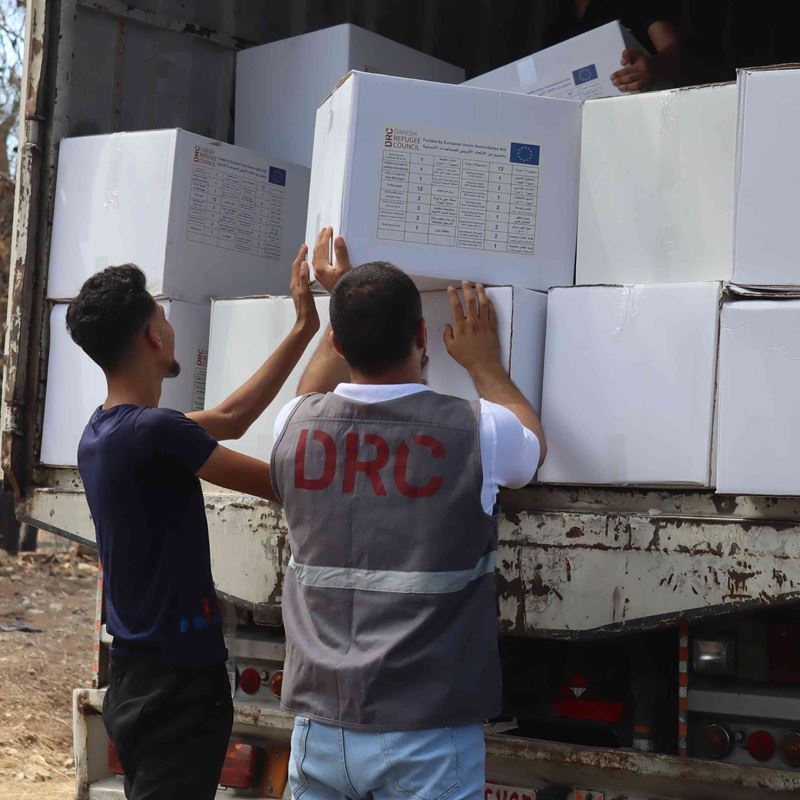
Distribution of hygiene kits to affected communities in Qastal Maaf
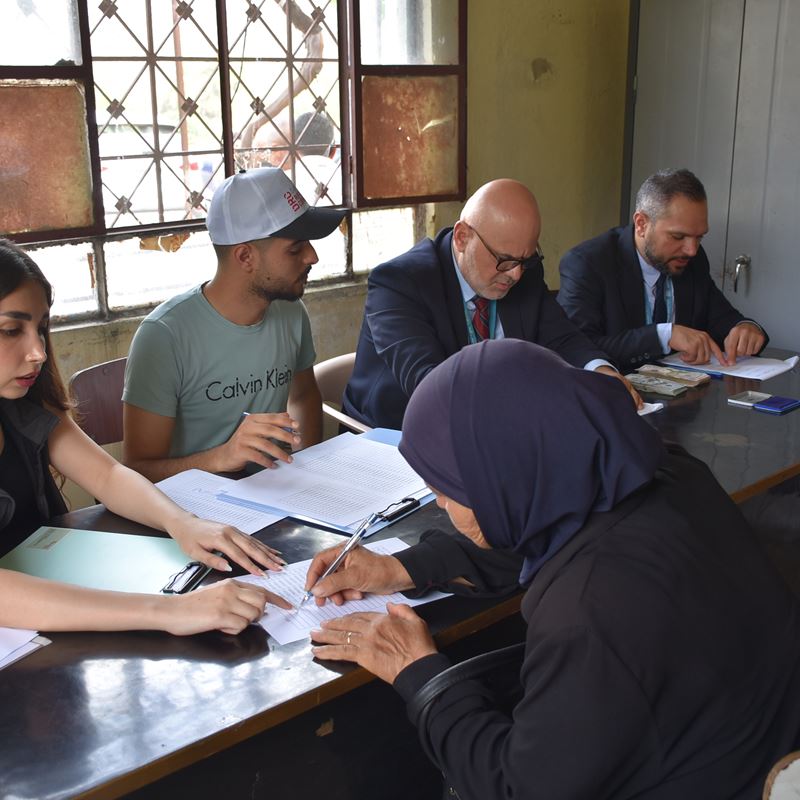
A woman from Balloran receives cash assistance.
Furthermore, our protection team provided Psychological First Aid (PFA) to 200 people from the affected communities.
PFA provides people, who have experienced distress due to displacement or trauma, with counselling and psychosocial support – offering emotional comfort, and connecting them with essential services when needed.
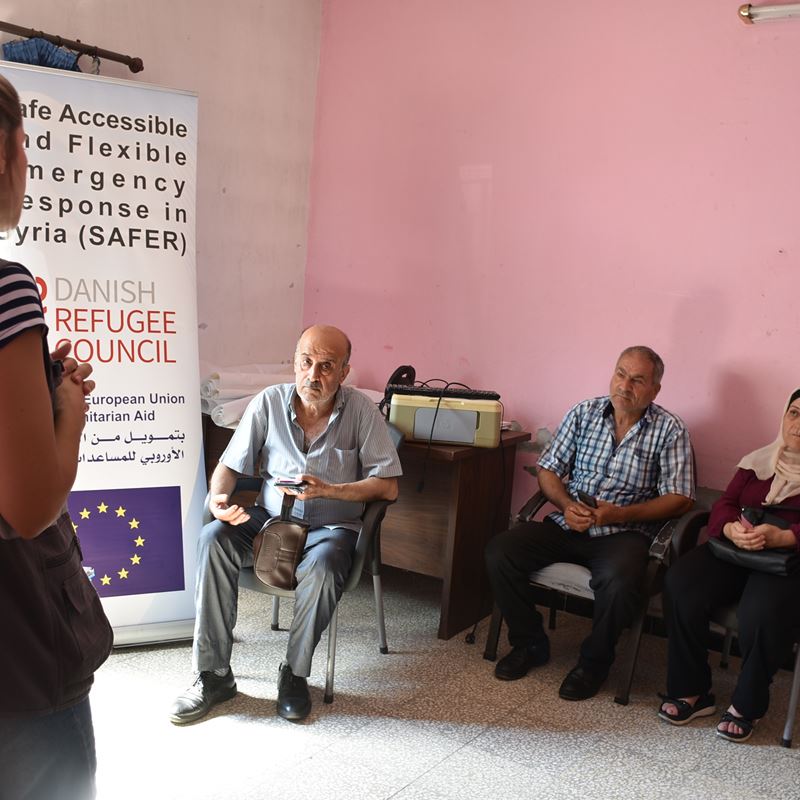
DRC’s protection team provides PFA to affected community members in Karafellahli, Qastal Maaf.
In the aftermath of the wildfires, affected communities are enduring the loss of their homes and lands while struggling to find alternative sources of income. The support provided by DRC offered immediate relief and helped families meet some of their basic needs. Still, those families urgently require more support to restore their livelihoods and rebuild what has been lost, as they face a long and uncertain recovery journey.
In the midst of continued conflict, transition, and economic and displacement crises, wildfires serve as a harsh reminder of the escalating climate crisis in Syria, and highlights the need to mobilize efforts and resources for emergency preparedness and recovery to protect Syrian communities.